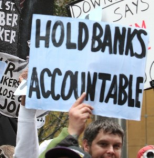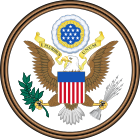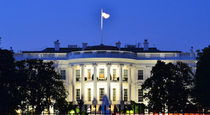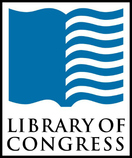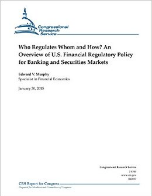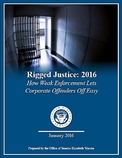U.S. Bank Regulation
Bank regulation in the United States - Wikipedia
Bank regulation in the United States
Wikipedia
Bank regulation in the United States is highly fragmented compared with other G10 countries, where most countries have only one bank regulator. In the U.S., banking is regulated at both the federal and state level. Depending on the type of charter a banking organization has and on its organizational structure, it may be subject to numerous federal and state banking regulations. Apart from the bank regulatory agencies the U.S. maintains separate securities, commodities, and insurance regulatory agencies at the federal and state level, unlike Japan and the United Kingdom (where regulatory authority over the banking, securities and insurance industries is combined into one single financial-service agency).[1] Bank examiners are generally employed to supervise banks and to ensure compliance with regulations.
U.S. banking regulation addresses privacy, disclosure, fraud prevention, anti-money laundering, anti-terrorism, anti-usury lending, and the promotion of lending to lower-income populations. Some individual cities also enact their own financial regulation laws (for example, defining what constitutes usurious lending).
Dodd–Frank Wall Street Reform and Consumer Protection Act -- 12 U.S. Code Chapter 53
an Act to promote the financial stability of the United States by improving accountability and transparency in the financial system, to end "too big to fail", to protect the American taxpayer by ending bailouts, to protect consumers from abusive financial services practices, and for other purposes.
12 U.S. Code Chapter 53 - WALL STREET REFORM AND CONSUMER PROTECTION - Cornell U of Law LLI
12 U.S. Code Chapter 53 Subchapter V - BUREAU OF CONSUMER FINANCIAL PROTECTION - Cornell U of Law LLI
The Consumer Financial Protection Bureau - CFPB
Dodd-Frank The White House
Consumer Financial Protection Bureau CFPB Wikipedia
Dodd-Frank Act Wikipedia
Dodd-Frank 12 U.S.C. Chapter 53
Dodd-Frank Act LLI Cornell Law
Dodd-Frank Act Title X CFPB
Dodd-Frank Act GPO
CFPB Strategic Plan 2012-2017
The White House fights for the CFPB, HousingWire
The House Financial Services Committee is considering several bills to change Wall Street reform today, including changing the Consumer Financial Protection Bureau, a move the White House is quick to fight back on.
Jeffrey Zients, director of the National Economic Council and Assistant to the President for Economic Policy, published a blog on the White House’s website, trying to refute any plan to change the CFPB, along with two other deals on the table.
These bills include efforts at the behest of Wall Street to undermine the people’s watchdog — the Consumer Financial Protection Bureau (CFPB); an attack on American families’ retirement security by blocking the proposed Conflict of Interest Rule; and a step backward on transparency and accountability for public firms’ CEO compensation.
The main issue related to housing that the blog addresses is running the CFPB by Commission.
Today, the Committee is considering a provision to install a commission structure at the CFPB, instead of a Director. Opponents of the CFPB view a commission structure as a maneuver designed to tie the CFPB in knots, limiting the Bureau’s effectiveness. Congress designed the CFPB to respond rapidly to changing market conditions and to react quickly to new threats to consumers and determined the CFPB would operate most effectively with a single leader.
Richard Cordray, director of the CFPB, sat in front of the House Financial Services Committee for his semi-annual report Tuesday morning, facing attacks from Republicans and paeans from Democrats.
Now one day later, the White House is showing where it stands on the issue. Read more
Source: The White House
Summary of the Dodd-Frank Act
Dodd-Frank implementation SEC
Dodd-Frank Act FDIC
Dodd-Frank - CFTC Commodity Futures Trading Commission
Dodd-Frank - H.R. 4173 (484p)
Fat paychecks for CFPB officials, hundreds paid more than Fed Chairman, congressmen, Supreme Court justices
By Richard Pollock
Employees of the new Consumer Financial Protection Board may be the most lavishly paid of all federal workers.
Hundreds of CFPB officials are paid more than Supreme Court Justices, senior White House officials, members of Congress, and all 50 state governors, according to a Washington Examiner analysis of salary data for the board's 1,204 workers.
The watchdog board, for example, pays 56 employees more than the $199,700 Federal Reserve Board Chairman Ben Bernanke receives. Federal Reserve governors get $179,700, a figure exceeded by 111 CFPB workers.
Congress created the CFPB in 2011 as a financial services regulatory entity under the Federal Reserve, which is exempt from regular civil service pay scales.
A CFPB spokesman said the board is required to follow Federal Reserve pay scales.
"Dodd-Frank legislation requires CFPB to design pay and benefit programs that are comparable to the Federal Reserve Board and in line with other federal financial regulators," said the spokesman who demanded anonymity.
But a Federal Reserve spokesman said the Fed has no authority to determine what CFPB pays its employees.
In any case, the average annual salary paid by CFPB is $118,000, while the median is $113,000. Six-figure salaries go to 741 employees, or 61% of the CFPB workforce, with one in four taking home $150,00 or more.
Individual median income in the U.S. is $29,965, according to the U.S. Census, and $69,821 for households.
Fifty-six CFPB officers earn more than all presidential cabinet secretaries who earn $199,500.
There are 173 agency staff who earn more than all elected Members of Congress and 209 employees who earn more than all 50 U.S. governors.
Congressional salaries are set at $174,000 (with a few exceptions for top leaders), while gubernatorial compensation ranges from Maine Gov. Paul LePage's $70,000 to $165,288 for California's Jerry Brown.
Fourteen agency staffers are paid more than Vice President Biden who earns $227,000.
Nineteen CPFB staffers earn more than Speaker of the House John Boehner, who is third in line for succession to the presidency and is paid $223,500. Read more
CFPB PAY FAIRNESS ACT OF 2013
House Report 113-349 - Part 1 - CFPB PAY FAIRNESS ACT OF 2013
BACKGROUND AND NEED FOR LEGISLATION
Under current law, the rates of basic pay for CFPB employees are set and adjusted by the Director of the CFPB. Compensation (including benefits) for classes of employees must be comparable to the compensation and benefits being provided by the Board of Governors of the Federal Reserve System for corresponding classes of employees.
As of September 30, 2013, the CFPB had 1,335 employees and spent $190.2 million on employee salaries and benefits, according to the Fiscal Year 2013 Financial Report of the Consumer Financial Protection Bureau. Read more
Committee Reports - 113th Congress (2013[...]
Adobe Acrobat document [37.2 KB]
Revolving door at regulator CFPB enables former bureaucrats to cash in at taxpayers expense
Washington
Examiner
By Timothy P. Carney
Peter Carroll helped shape the mortgage regulations at the Consumer Financial Protection Bureau until this spring. Now, Carroll is senior vice president of capital markets at Wells Fargo Home Mortgages, the largest private mortgage lender in the country.
Carroll’s colleague, Lisa Applegate, was the "Mortgage Implementation Lead," at CFPB, and now she’s "strategic quality manager within Wells' home lending capital markets group," according to American Banker magazine.
Carroll’s replacement at CFPB, Patricia McClung, was recently at the National Association of Realtors (one of the largest lobbying groups in the country), and for years was an executive at failed mortgage giant Freddie Mac.
What’s remarkable about the revolving-door action at the CFPB this year is that it’s completely unremarkable for the agency.
The Democratic Congress and the Obama White House created the CFPB with its 2010 Dodd-Frank financial regulation bill. The top aides to Messrs. Dodd and Frank, of course, have cashed out to K Street and Wall Street.
So have many of the regulators at the Federal Reserve, the Securities and Exchange Commission, and the Treasury Department who helped implement the rules required by the law.
But the CFPB was supposed to be different. Other financial regulators were "captured" by the industries they were supposed to regulate. One reason was the revolving door: play ball with the banks, and you’ve got a nice job waiting when you get sick of government work. So Congress thought it was time to replace those captured regulators with a new, un-captured regulator.
"How do you prevent yourself from becoming one of the captured regulatory agencies?" was one of the guiding principles for organizing the CFPB, Director Richard Cordray told American Banker. Read more
Who Regulates Whom and How? CRC - R43087
Congressional Research Service:
An Overview of
U.S. Financial Regulatory Policy
January 30, 2015
Edward V. Murphy
Specialist in Financial Economics
Who Regulates Whom and How - R43087.pdf
Adobe Acrobat document [622.1 KB]
Rigged Justice: 2016 How Weak Enforcement Lets Corporate Offenders off Easy
Press Release. Senator Warren Releases "Rigged Justice," First Annual Report Detailing How Weak Federal Enforcement Lets Corporate Offenders Off Easy
Jan 29, 2016.
A PDF copy of the report is available here
Washington, DC - United States Senator Elizabeth Warren today released a report titled Rigged Justice: How Weak Enforcement Lets Corporate Offenders Off Easy. The report, the first in an annual series on enforcement, highlights 20 of the most egregious civil and criminal cases during the past year in which federal settlements failed to require meaningful accountability to deter future wrongdoing and to protect taxpayers and families. Read more
Rigged_Justice_2016.pdf
Adobe Acrobat document [1.1 MB]
Office of Comptroller of the Currency (OCC)
The OCC's primary mission is to charter, regulate, and supervise all national banks. We supervise the federal branches and agencies of foreign banks. Our goal in
supervising banks is to ensure that they operate in a safe and sound manner and in compliance with laws requiring fair treatment of their customers and fair access to credit and financial
products.
OCC Wikipedia Headquartered in Washington, D.C., the OCC has four district offices located in New York City, Chicago, Dallas and Denver. It has an additional 48 field offices throughout the United States, and a London office to supervise the international activities of national banks. It is an independent bureau of the United States Treasury and is headed by the Comptroller of the Currency.
The Office of Thrift Supervision was merged into the Office of the Comptroller of the Currency (OCC) effective July 22, 2011
- Office of Thrift Supervision Wikipedia
Securities and Exchange Commission (SEC)
The Investor's Advocate: How the SEC Protects Investors, Maintains Market Integrity, and Facilitates Capital Formation. Read more
The mission of the U.S. Securities and Exchange Commission is to protect investors, maintain fair, orderly, and efficient markets, and facilitate capital formation. Read more
The Laws That Govern the Securities Industry
- Securities Act of 1933 (Wikipedia) (Cornell)
- Securities Exchange Act of 1934 (Wikipedia) (Cornell)
- Trust Indenture Act of 1939 (Wikipedia) (Cornell)
- Investment Company Act of 1940 (Wikipedia) (Cornell)
- Investment Advisers Act of 1940 (Wikipedia) (Cornell)
- Sarbanes-Oxley Act of 2002 (Wikipedia) (Cornell) (GPO)
- Dodd-Frank Wall Street Reform and Consumer Protection Act of 2010 (Wikipedia) (Cornell)(12 USC Chapter 53)
- Jumpstart Our Business Startups Act of 2012 (Wikipedia)
- Rules and Regulations
SEC Wikipedia. The U.S. Securities and Exchange Commission (SEC) is an agency of the United States federal government. It holds primary responsibility for enforcing the federal securities laws, proposing securities rules, and regulating the securities industry, the nation's stock and options exchanges, and other activities and organizations, including the electronic securities markets in the United States.[2]
In addition to the Securities Exchange Act of 1934, which created it, the SEC enforces the Securities Act of 1933, the Trust Indenture Act of 1939, the Investment Company Act of 1940, the Investment Advisers Act of 1940, the Sarbanes–Oxley Act of 2002, and other statutes. The SEC was created by Section 4 of the Securities Exchange Act of 1934 (now codified as 15 U.S.C. § 78d and commonly referred to as the Exchange Act or the 1934 Act). more
SEC probing fraud at U.S.-listed foreign companies
SEC probing fraud at U.S.-listed foreign companies By
Sarah N. Lynch, April 4, 2011
WASHINGTON (Reuters) - Securities regulators are probing Chinese and other foreign companies with questionable accounting practices that have used backdoor methods to access U.S. capital markets, a
top regulator said on Monday.
"In recent years we have seen a spike in private companies merging with a public shell company as a way of going public," said Luis Aguilar, a commissioner at the U.S. Securities and Exchange
Commission. "While it is Chinese companies that have grabbed recent headlines, the problems coming to the forefront would not necessarily be limited to companies based in China," he said.
Aguilar added that while the majority of these may be legitimate businesses, "a growing number of them are proving to have significant accounting deficiencies or being
vessels of outright fraud." Aguilar was speaking to the Council of Institutional Investors spring gathering on Monday about a growing trend that has caused alarm at the SEC and led to trading
suspensions and other enforcement actions. Read more
Federal Deposit Insurance Corporation
The Federal Deposit Insurance Corporation (FDIC) is an independent agency created by the Congress to maintain stability and public confidence in the nation's financial
system by: Insuring deposits, Examining and supervising financial institutions for safety and soundness and consumer protection, and Managing receiverships.
FDIC Wikipedia The Federal Deposit Insurance Corporation (FDIC) is a United States government corporation created by the Glass-Steagall Act of 1933. It provides deposit insurance, which guarantees the safety of deposits in member banks, currently up to $250,000 per depositor per bank. As of November 18, 2010, the FDIC insures deposits at 7,723 institutions. The FDIC also examines and supervises certain financial institutions for safety and soundness, performs certain consumer-protection functions, and manages banks in receiverships (failed banks). Read more

